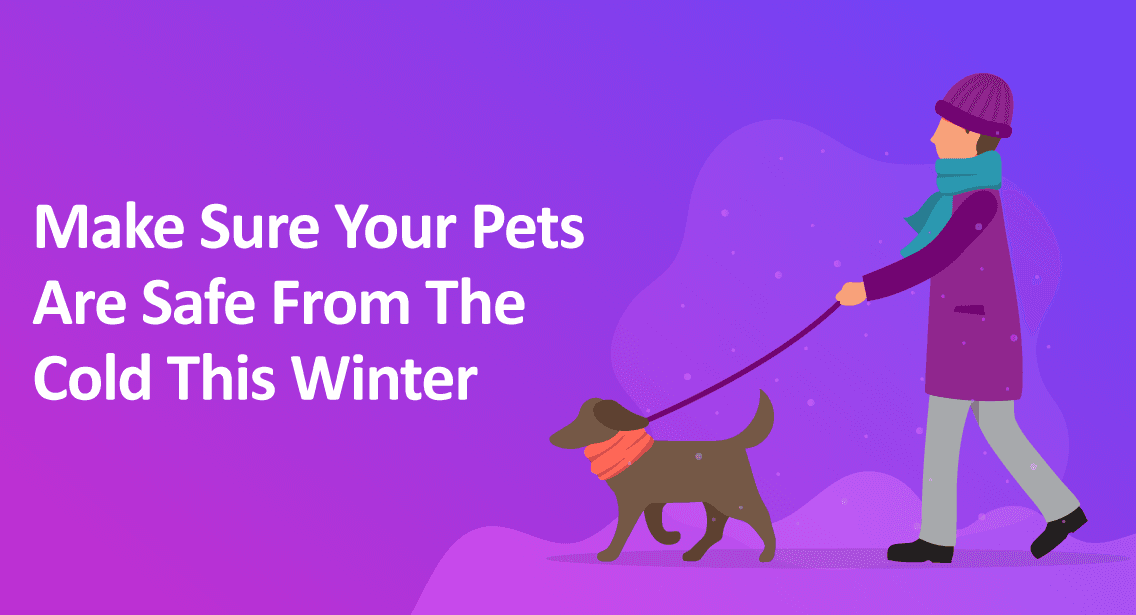Make Sure Your Pets Are Safe From The Cold This Winter
Winter also brings the cold and flu season to our pets, but owners can do a lot to keep their pets healthy by preventing it.
Coughs, colds, and respiratory illnesses spread more easily from others. For example, dogs frequently contract diseases after staying in kennels, attending indoor training classes, or competing in events where they encounter other dogs. Infections can spread quickly through airborne particles, shared drinking water, or contaminated surfaces.
We may also inadvertently pass infections to our pets, especially if we have previously handled or stroked an infected animal. Some disease-causing organisms can survive for several hours on our clothing and footwear. Washing your hands, changing your clothes, and practicing good hygiene are simple but effective ways of limiting the spread of many infections.
Diseases can occasionally be transmitted between species, from animal to human and vice versa. These zoonotic diseases range from minor infections to deadly diseases like rabies. More drastic measures, such as animal quarantine, are required to control the virus.
If you catch a cold, your pet will not catch it. The viruses that cause colds are unique to humans, though dog and cat versions may cause similar cold symptoms in our canine and feline companions. The good news is that they cannot pass on their cold to us.
Similarly, flu is species-specific, even though the influenza virus can mutate and occasionally 'jump' the species barrier. While this is extremely rare, it does imply that there is a theoretical risk of flu transmission between animals and humans. This is why, during outbreaks, maintaining good hygiene and avoiding close contact with other species is a good idea.
If your dog or cat gets a cold, sneezing, runny nose, coughing, possibly fever, tiredness, and often a loss of appetite are common symptoms. If you suspect your pet is ill, consult your veterinarian to ensure an accurate diagnosis. Your pet may also require antibiotics. However, never attempt to treat your pet with human medications. Over-the-counter medications that are safe for humans can be toxic to our pets.
There are numerous simple things you can do to assist your sick pet. First, ensure they're warm and comfortable, as this will aid their recovery. Many senior dogs benefit from coats both inside and outside to keep their joints warm. Wash or change their bedding regularly to maintain a comfortable environment for them to recuperate. This will also reduce the possibility of the infection spreading to other pets in the household. Make sure there is always fresh, clean drinking water for them. Consider adding warm water to encourage drinking if the weather is extremely cold.
If your dog starts coughing, especially when waking up, and may even gag or retch, they may have kennel cough. This is highly contagious, and a coughing dog should be isolated from other dogs until the coughing stops and they recover. This includes not bringing a coughing dog into the waiting room of your veterinarian. However, kennel cough cannot be transmitted to other pets (such as cats).
Seasonal illnesses are usually mild and self-limiting in otherwise healthy pets. You can do numerous things to reduce your pet's chances of becoming ill. First, ensure their vaccinations are up to date and ask your vet if there are any local diseases to be concerned about. While vaccinations cannot prevent everything, they can help support your pet's health and lower the risk of serious illness.
We may share our homes, lives, and sometimes even beds with our pets, but we don't have to worry about them catching our seasonal coughs and colds.







